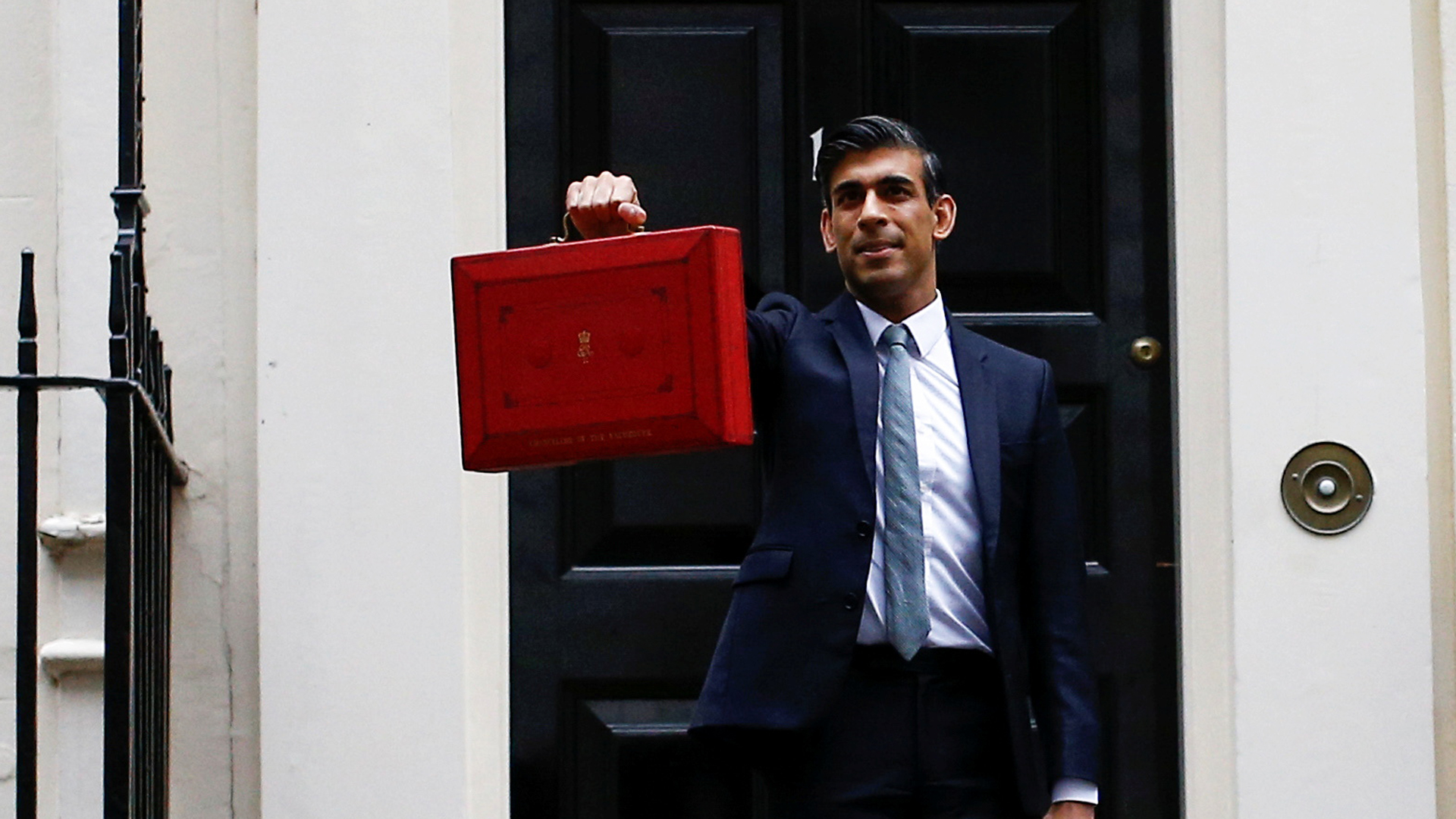Austerity May Be Over, but the Tories Still Aren’t Spending Enough
The average household is set to be £13,000 worse off by the middle of the decade.
by James Meadway
29 October 2021

Rishi Sunak may have been standing at the dispatch box in parliament to deliver this year’s budget, but, make no mistake, this was Boris Johnson’s day.
After some weeks of party factionalism, this year’s budget, under Johnson, is a marked departure from the Tory austerity of the last decade.
Day-to-day spending will increase by £150bn over the next few years, close to the kind of spending increases New Labour pushed through while they were in government. The government will also allocate additional spending for investment, including public transport and research and development.
Sunak, like many Tories, is a believer in low taxes and a small state. But what this budget made clear is that Thatcherites aren’t leading the party anymore. Now, with Johnson in a uniquely strong position as leader, and with so many former Labour seats to try and keep hold of, this Tory government has moved to embrace spending rather than cuts.
While this new consensus between the left and right in favour of spending should broadly be welcomed, it must be acknowledged that the Tories’ pivot has only come about as a result of a concerted effort by the left – a decade of anti-austerity campaigning and Jeremy Corbyn’s leadership of Labour – to draw attention to the brutality of their austerity measures – not forgetting, of course, the visible impact of the cuts themselves.
With austerity no longer the right’s top priority, the left’s political playbook for the last decade – which largely involved attacking the Tories for their harsh austerity programme – is defunct. The political terrain on which we are fighting has changed – and it demands we develop a more sophisticated set of tactics in taking on the Tories.
Back to the status quo.
In doing this, the left must start by recognising that regardless of the Tories’ move away from austerity, the spending increases the party is proposing are nowhere near sufficient enough to undo the damage inflicted by successive Conservative governments over the last decade.
This plays out across the whole budget. Take education, for example. While Sunak laid out the government’s plan for education spending per pupil to increase substantially, this increase is only enough to return education spending to what it was in 2010 by 2024.
Similarly, the much-trumpeted 75 ‘family hubs’ (centres intended to provide essential services to families) that the Tories are proposing appear to be near-identical to the 1,300 Sure Start centres that the Tories previously closed. And, of course, 75 pales in comparison to the original 1,300.
The same thing has happened with welfare spending. While the reduction of the ‘taper rate’ on Universal Credit (UC) (the amount of UC payments that claimants lose, as they work and earn more above a certain threshold), is undoubtedly a good thing, it is not nearly enough to overcome the £20 a week UC cut the Tories forced through a month ago. Indeed, while not every UC claimant will benefit from the taper rate decrease, every single one will be impacted by the £20 a week cut.
Climate got the cold shoulder.
Meanwhile, the most important single issue of our times, climate change, scarcely got a look in. Sure, there was the promise of £30bn for green investment. But this one-off financial commitment is the same as what the Institute for Public Policy Research thinks is needed every single year in order to decarbonise our economy and meet the UK’s ‘net zero’ target.
Indeed, if we are to both undo the damage of Tory austerity, and decarbonise the economy, a significantly greater spending commitment will be needed – £70-90bn a year over the next three years, according to left-leaning think tanks and economists.
If this wasn’t disappointing enough, Sunak then proceeded to undercut the government’s already paltry decarbonisation commitment with a stupefying cut to air passenger duties for domestic flights – a move that will encourage more domestic flights, rather than less. Considering this came a week before the crucial COP26 climate change conference opens in Glasgow, it is nothing less than an act of legislative vandalism.
Rishi Sunak’s cut in air passenger duties for domestic flights has to be one of the most staggeringly bizarre decisions I’ve heard of in any budget. What a way to begin hosting #COP26
— Neil Warner (@NeilWarner_) October 28, 2021
Of course, this is hardly surprising from this government. Johnson and his allies might look more progressive in their rejection of austerity, but ultimately, they will always shy away from meaningfully addressing the very real problems and injustices that we as a society face.
This is exemplified by the fact that Sunak made no mention of taxing Big Tech monopolies, or of implementing a wealth tax, despite the extraordinary gains made by the very rich in the last year. There are now more billionaires in Britain than ever before.
And in many ways, the Tories are actively making these inequalities worse. Sunak announced the government will be cutting taxes for banks by £1bn, which he claimed is needed to foster “competitiveness” – even as banks like Barclays announce their profits have doubled in the last year.
Such a move stands in stark contrast with the government’s treatment of workers, who are being hit with a significant National Insurance Contributions increase. The Resolution Foundation estimates households will see an average £3,000 increase in their tax bill over the next few years.
The Conservative Government has been responsible for a decade of wage stagnation, rising inequality & soaring in work poverty. The latest increase to the minimum wage will still leave millions worse off in real terms. Let’s put the record straight pic.twitter.com/K8mzIpdC1h
— Peter Stefanovic (@PeterStefanovi2) October 26, 2021
It’s still profit over people.
Significantly, Sunak was able to put forward his spending increases not by taxing the rich, or by borrowing significantly more than planned. Over the last year, the economy has rebounded from the pandemic shocks of 2020 much quicker than the official forecasts predicted, meaning the government has been receiving more tax than it expected, creating a roughly £30bn windfall in the process.
These same official forecasts now claim that the economic fallout from the pandemic will be much less than they first anticipated. The Office for Budget Responsibility now estimates that Covid-19 will cause a two percent permanent loss in GDP – a marked decrease from its earlier estimate of four percent. This again means that the government will be receiving more tax than previously expected.
The fact that Johnson’s government is choosing to use these two windfalls mainly for day-to-day spending, with no attempts at sneaking in a tax cut or repaying the debt, as old school Tories likely would have done, points to a significant divide in the Conservative party.
Where Sunak – who surely wants to be the next Tory leader – is a Thatcherite, and has always been eager to talk up his low tax, small state credentials – even as he raises taxes and increases spending – the new Tories, under Johnson, are consciously breaking from austerity, instead choosing to increase spending. But, of course, this hasn’t happened as a result of some change in their fundamental convictions. After winning so many former Labour seats on a promise to “get Brexit done” and end austerity, it’s clear Johnson wants to make sure he can enter the next election claiming both big promises have been delivered.
Changing terrain.
Despite Sunak’s talk of “optimism” in relation to this year’s budget, for most people, there is little to feel cheerful about. Millions of Britons will face rising costs for essentials like gas, electricity and even food. This comes after a decade in which pay, in real terms, has barely risen – with even the conservative Institute of Fiscal Studies now warning that worse is to come, with the average household set to be £13,000 worse off by the middle of the decade. The Resolution Foundation, meanwhile, estimates that tax rises in this budget, including the increase in National Insurance Contributions, will cost the average household £3,000.
And whilst the official forecasts look better than they did, they are just that – forecasts. Other, credible predictions suggest more long-term damage to the economy as a result of coronavirus, even before we factor in increased environmental instability and all the costs and problems it will bring. Extreme weather events are becoming more frequent, disruptions to food production are worsening, and the number of new diseases is also increasing. The next few years – indeed, the next few decades – will likely not be easy for most people.
The climate crisis makes extreme weather events like floods more frequent.
Stay safe everyone! https://t.co/QacR4FDbxx
— North West FOE (@NorthWestFOE) October 27, 2021
In this way, the political fights the left will be engaging over the next few years will be less about austerity and more about people’s living standards – particularly in terms of pay and rising prices for essentials like gas and electricity.
Ahead of this year’s budget, too many on the left were anticipating a return to the austerity of the last decade, and ended up blindsided by Sunak’s spending increases as a result.
While the left should welcome the end of austerity, it is important we remember who Boris Johnson and the Tories really are; that they will always look after their own first.
This means that they will cut taxes for bankers whilst also pushing through huge cuts to Universal Credit; that they will do nothing to address the huge disparities of wealth in this country; and that beyond some pious hopes for a ‘high wage’ economy, they will refuse to take serious action to drive up wages.
In order for the left to respond effectively to this changing terrain, we have to shift our main campaigning focus. While spending cuts will no doubt continue to dominate the agenda, we must also be ready to challenge the Tories on vital issues like pay, prices and the vast inequalities of life in Britain.
James Meadway is an economist and Novara Media columnist.


